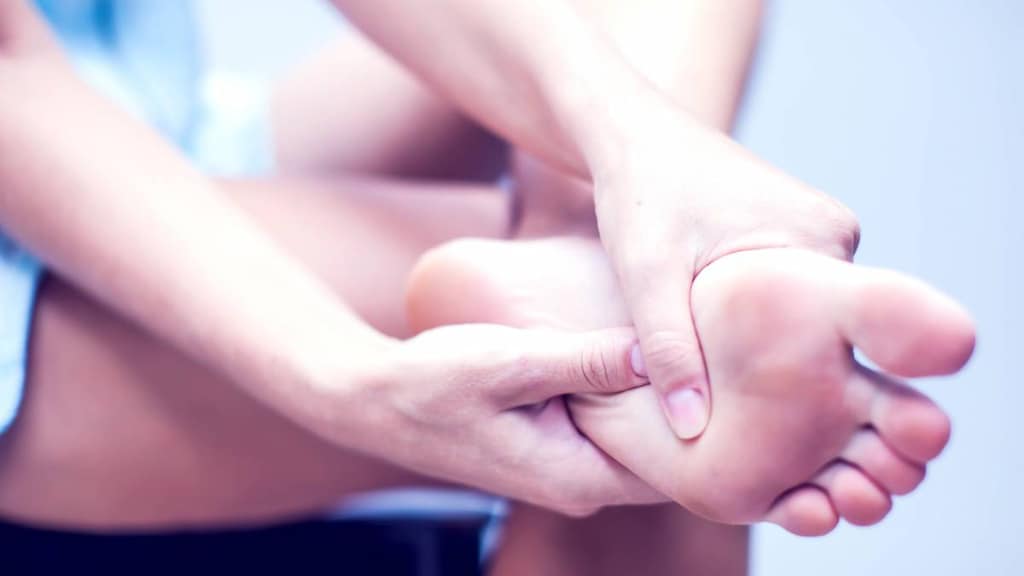
What are nocturnal leg cramps?
Nocturnal leg cramps are painful cramps that occur in the legs or feet at night, usually during sleep but may occur during periods of inactivity.
What causes nocturnal leg cramps?
Doctors are not sure exactly what causes nocturnal leg cramps, but they have identified several different contributing factors that increase the risk of developing leg cramps, for example:
- Age over 50 years
- Coexisting medical conditions, such as cirrhosis, diabetes, kidney failure, osteoarthritis, Parkinson’s disease, thyroid disorders, and vascular or circulation-related disease
- Dehydration
- Electrolyte and mineral imbalances
- Excessive alcohol consumption
- Exercise, particularly over-exertion
- Medications, such as diuretics (particularly thiazide and potassium-sparing diuretics), lithium, long-acting beta-agonists (such as salmeterol), opioids, raloxifene, some NSAIDs (such as naproxen), and statins
- Muscle fatigue
- Narrowing of the spinal canal in the lower back (lumbar canal stenosis)
- Nerve damage from cancer treatment or other medical conditions
- Pregnancy
- Prolonged sitting with legs crossed or sitting for long periods
- Prolonged standing on concrete floors
- Reduced peripheral blood flow
- Structural abnormalities, such as flat feet or ankle malformations
- Tight bed sheets that cause the toes to point downwards.
What are the symptoms of nocturnal leg cramps?
Symptoms of nocturnal leg cramps include:
- Sudden episodes of cramping or pain in the calf muscles (most common), thighs, or feet lasting for several seconds up to several minutes. These episodes may recur intermittently throughout the night
- Usually occurs during sleep, waking the person up from sleep, although may occur when just lying in bed
- Affected muscles feel tight or knotted
- Sometimes there is residual soreness in the muscle for hours afterwards after the cramp resolves
- Sleep disruption during the night from cramping may cause drowsiness and impaired functioning the next day.
In approximately 20% of people, symptoms are severe enough to affect sleep quality or require medical attention.
At least of half of all adults experience nocturnal leg cramps at some point in their lives. Cramping of the calf muscle at night is particularly common in women who are pregnant and is considered a normal part of pregnancy, affecting 40% of women. Only 7% of children report nocturnal leg cramps.
Symptoms of nocturnal leg cramps are not the same as restless legs syndrome (RLS). Rather than being suddenly painful, RLS is more of a discomfort or a crawling sensation that makes the person want to move their legs. With nocturnal leg cramps the affected muscle needs to be actively stretched for relief.
How are nocturnal leg cramps diagnosed?
If you are experiencing persistent cramping at night, see your doctor. Your doctor will ask you questions about your symptoms, what medications you take, and any other medical conditions you have. They will perform a physical examination.
Usually, a diagnosis can be made based on your symptoms. Other tests may be performed if an underlying condition is suspected that may be causing or contributing to the leg cramps.
How are nocturnal leg cramps treated?
Treatment aims to relieve symptoms, unless an underlying cause has been identified that can be safely treated.
Initial treatments focus on lifestyle management to prevent the cramps from occurring, such as:
- Keeping hydrated throughout the day
- Avoiding caffeine and alcohol, particularly later in the day
- Brief stretching or light exercise (such as walking or cycling on a stationary bike) before going to bed
- Keeping the bed covers loose and not tucked in
- Wearing properly fitted shoes.
If a cramp occurs, forcefully stretching the affected muscle is usually the most effective way to relieve it (the foot should be flexed upward). Walking around, jiggling or massaging the leg may also help. Some people find applying ice to the affected area or a warm bath beneficial.
Medications that may be considered if lifestyle measures do not work include the following, most of which are off-label:
- Diltiazem or verapamil
- Gabapentin
- Orphenadrine
- Nortriptyline
- Vitamin B12.
Trials of supplements such as magnesium, calcium, or vitamin E have not been shown to be beneficial for nocturnal leg cramps, although anecdotally they may work for some people.
Quinine has been used in the past for nocturnal leg cramps; however, it has a high potential for serious and life-threatening adverse effects (cardiac arrhythmias, thrombocytopenia, and hypersensitivity reactions), and is no longer recommended as a treatment option.




